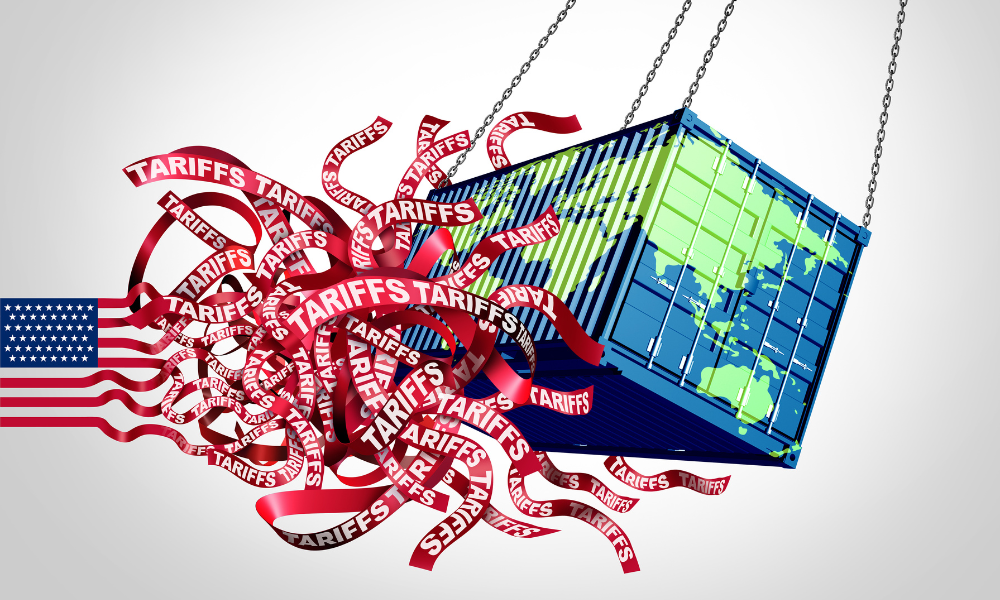

Any hopes of a last minute reprieve for countries facing tough US tariffs ended at midnight in Washington as Trump’s reciprocal levies kicked in, with the 104% on Chinese goods the highest.
Whether it’s viewed as rebalancing trading relationships to make it fairer for the US, or the highest tax rise on US citizens for decades, for global economies and American businesses the impact is real, and investors are taking it badly.
Tariffs are the driver of a 12% drop in the Dow Jones Industrial Average over four days, that’s 4,500 points lost, closing 0.9% lower Tuesday while the S&P 500 ended its session down 1.6% having been up 4% earlier in the day.
US futures indicate a flat start to the new day, but global equities are down with Europe off by around 3% and Asian markets mixed, with China notably higher despite the eyewatering tariffs amid fighting talk from Beijing, while also showing willingness to negotiate with the US.
But while the markets navigate the muddied waters of global trade, there may yet be further industry-specific tariffs to come.
President Trump said Tuesday that “We are going to be announcing very shortly a major tariff on pharmaceuticals.” The industry was one of those highlighted previously with the president annoyed that many US pharma firms have established themselves in the Republic of Ireland where corporate taxes are low.
While no details have been provided regarding potential rates of tariffs on pharmaceutical imports, those for auto, steel, and aluminium have been set at 25% which could be repeated for the drugmakers.
“Once we do that, they’re going to come rushing back into our country, because we’re the big market,” Trump told a Republican fundraiser. “The advantage we have over everybody is that we’re the big market.”
For now, markets will continue to react to what we know already, together with growing concerns about recession, inflation, the Fed, and when the bottom will be reached for US equity markets.

Summit Financial unveiled a suite of eight new tools, including AI lead gen and digital marketing software, while MassMutual forges a new partnership with Orion.

A new analysis shows the number of actions plummeting over a six-month period, potentially due to changing priorities and staffing reductions at the agency.

The strategic merger of equals with the $27 billion RIA firm in Los Angeles marks what could be the largest unification of the summer 2025 M&A season.

Report highlights lack of options for those faced with emergency expenses.

However, Raymond James has had success recruiting Commonwealth advisors.
Orion's Tom Wilson on delivering coordinated, high-touch service in a world where returns alone no longer set you apart.
Barely a decade old, registered index-linked annuities have quickly surged in popularity, thanks to their unique blend of protection and growth potential—an appealing option for investors looking to chart a steadier course through today's choppy market waters, says Myles Lambert, Brighthouse Financial.
